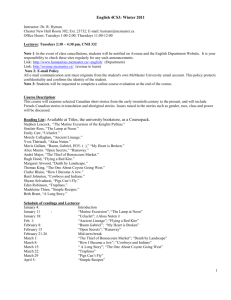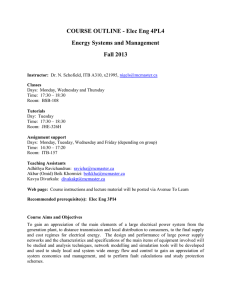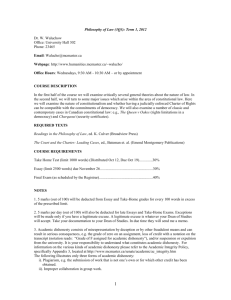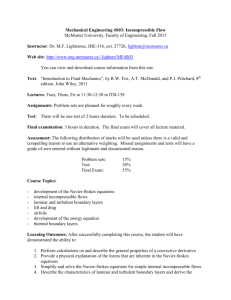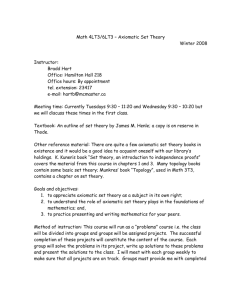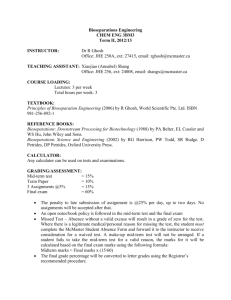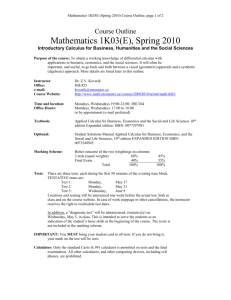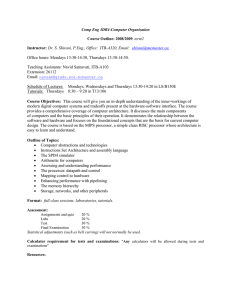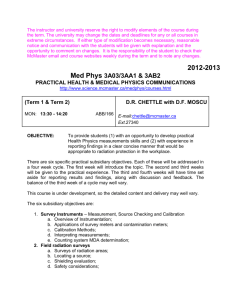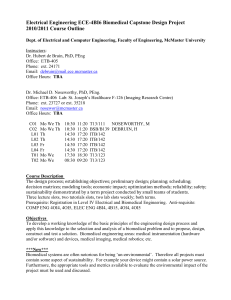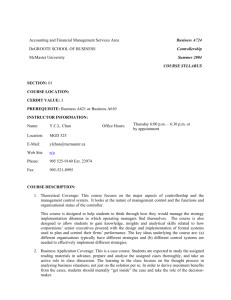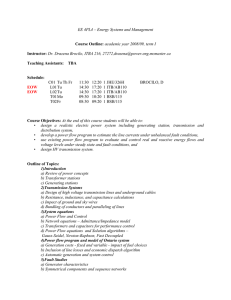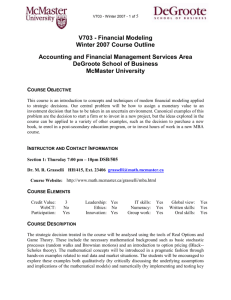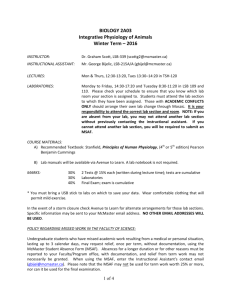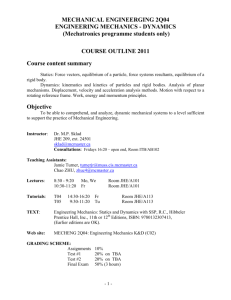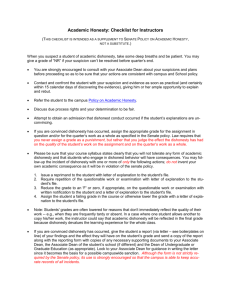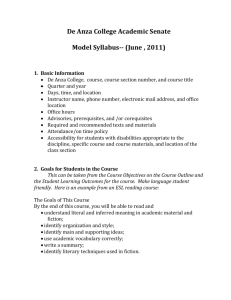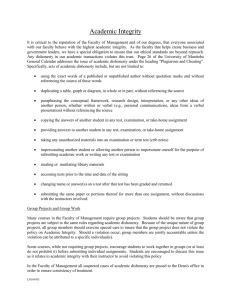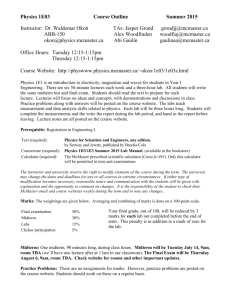Mechanical Engineering 3F04: Modelling and Numerical Solutions
advertisement
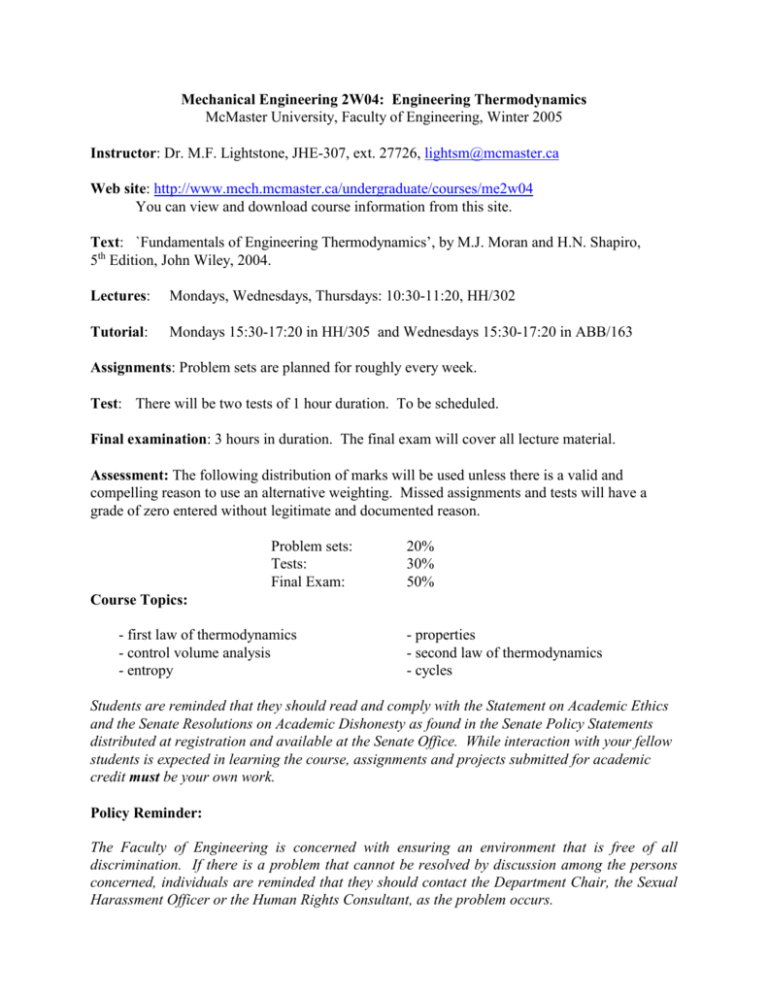
Mechanical Engineering 2W04: Engineering Thermodynamics McMaster University, Faculty of Engineering, Winter 2005 Instructor: Dr. M.F. Lightstone, JHE-307, ext. 27726, lightsm@mcmaster.ca Web site: http://www.mech.mcmaster.ca/undergraduate/courses/me2w04 You can view and download course information from this site. Text: `Fundamentals of Engineering Thermodynamics’, by M.J. Moran and H.N. Shapiro, 5th Edition, John Wiley, 2004. Lectures: Mondays, Wednesdays, Thursdays: 10:30-11:20, HH/302 Tutorial: Mondays 15:30-17:20 in HH/305 and Wednesdays 15:30-17:20 in ABB/163 Assignments: Problem sets are planned for roughly every week. Test: There will be two tests of 1 hour duration. To be scheduled. Final examination: 3 hours in duration. The final exam will cover all lecture material. Assessment: The following distribution of marks will be used unless there is a valid and compelling reason to use an alternative weighting. Missed assignments and tests will have a grade of zero entered without legitimate and documented reason. Problem sets: Tests: Final Exam: 20% 30% 50% Course Topics: - first law of thermodynamics - control volume analysis - entropy - properties - second law of thermodynamics - cycles Students are reminded that they should read and comply with the Statement on Academic Ethics and the Senate Resolutions on Academic Dishonesty as found in the Senate Policy Statements distributed at registration and available at the Senate Office. While interaction with your fellow students is expected in learning the course, assignments and projects submitted for academic credit must be your own work. Policy Reminder: The Faculty of Engineering is concerned with ensuring an environment that is free of all discrimination. If there is a problem that cannot be resolved by discussion among the persons concerned, individuals are reminded that they should contact the Department Chair, the Sexual Harassment Officer or the Human Rights Consultant, as the problem occurs. McMaster University Statement on Academic Dishonesty Academic dishonesty consists of misrepresentation by deception or by other fraudulent means and can result in serious consequences, e.g. the grade of zero on an assignment, loss of credit with a notation on the transcript (notation reads: "Grade of F assigned for academic dishonesty"), and/or suspension or expulsion from the university. It is your responsibility to understand what constitutes academic dishonesty. For information on the various kinds of academic dishonesty please refer to the Academic Integrity Policy, specifically Appendix 3, located at http://www.mcmaster.ca/senate/academic/ac_integrity.htm The following illustrates only three forms of academic dishonesty: 1. Plagiarism, e.g. the submission of work that is not one's own or for which other credit has been obtained. (Insert specific course information, e.g. style guide) 2. Improper collaboration in group work. (Insert specific course information) 3. Copying or using unauthorized aids in tests and examinations.
